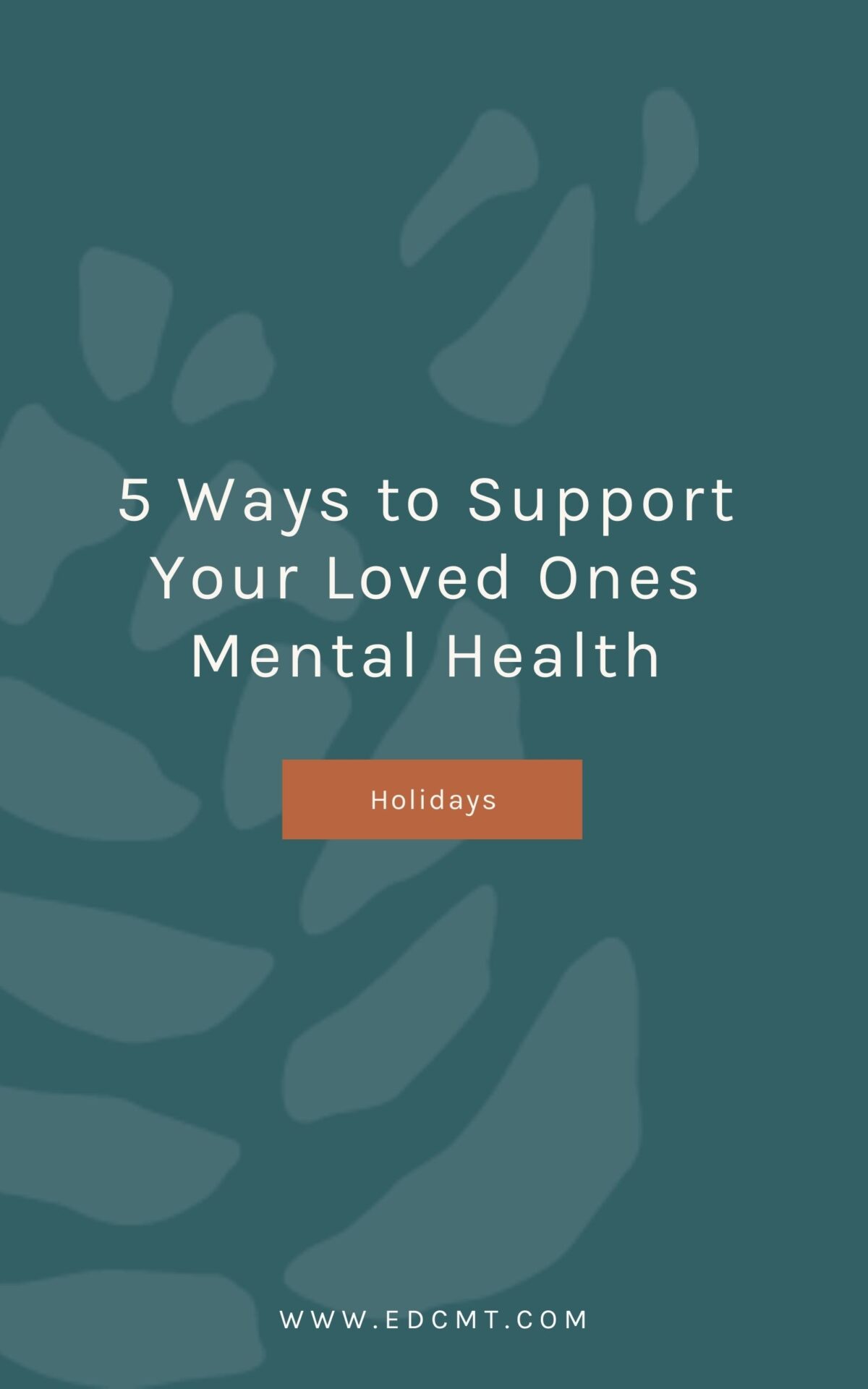
Holidays can be tricky. We’re all coming into the holiday season and end of the year with our own stories, experiences, and expectations. And on top of it we’re still going through a pandemic. We see a lot of advice about how to better take care of ourselves this year, but an equally important and common question is how do we better support others, especially those that might have an eating disorder or are struggling with their mental health. Here are five simple ways you can show up for those you love and support loved ones’ mental health:
1. Commit to no body or diet talk this holiday season—about yours, theirs, positive or negative.
Bodies are personal. Our food choices are deeply personal. We all carry experiences where someone’s comments on our body or food choices both, positive or negative, hurt us, shamed us or just didn’t sit right. Let’s break those cycles of pain and shame by not talking about bodies and diets at all. Even when we think we’re being positive or helpful, the truth is you never know what is going on beneath the surface. You could be validating an eating disorder or confirming the false belief that their worth is connected to their size or what they eat.
What can you say instead?
“I am so happy to see you.”
“I have really missed you.”
“I love you.”
“I’m so excited we get to spend this time together.”
“I’d love to hear how you’ve been doing.”
What do you do when someone starts talking about your body/diet or theirs?
Try changing the subject. ie. To the weather, something fun you did recently, ask if they have watched the new season of the Great British Baking Show yet?
Or tell them you’re happy for them but you’re working on your relationship with your body and ask if you can talk about something else instead.
2. Pay attention to the language you use around food and movement.
Beyond committing to no body or diet talk, you can commit to working on the way you talk about food and movement. Words carry a lot of power. How we talk about what we eat and how we move affects our relationship with those things. It’s so human to want to do and be good, so when we deem eating ‘x’ as bad we’re sending the message that we too are bad. All those messages both internal and external (friends, family, TV, books, media, doctors, etc.) are part of what make up the health of our relationship with food and bodies. There is so much power in taking back how we talk about food and our bodies and by modeling this behavior for others, you’re having a huge impact on anyone struggling with food and body disorders.
Some examples of how we can swap our language to be more neutral:
Instead of: ’I’m going to be bad and get fries,’ try: ‘French fries sound really good today.’
Instead of: ‘Let’s do the Turkey Trot to earn our Thanksgiving,’ try; ‘Does the Turkey Day run/walk sound fun to you?’
Instead of: ‘Look at how good she’s being by skipping dessert, I wish I had that self-control,’ try: ‘I’m really excited for pumpkin pie, this one looks so good.”
3. Respect others’ boundaries.
Depending on your own relationship to boundaries it can be hard to recognize and support others, but one of the easiest ways to start tuning into your loved ones’ boundaries is to listen and hear them.
If they tell you they are tired and overwhelmed and they want to do a simple holiday brunch instead of dinner, work to make that happen or compromise. If your family decides not to do traditional gifts, don’t break the rules and buy everyone gifts. If your sibling has a hard time with one of your parents, don’t force them to try to get along or make amends with the parent.
Supporting boundaries is supporting our right to individual sovereignty.
Bonus: Respecting others’ boundaries can have the ripple effect where your boundaries are better respected.
4. Check in with those you know find the holidays tough or are struggling right now.
When a friend or family member calls, texts or DMs you just to say hi and see how you are doing, chances are it makes you feel really good. One of the easiest ways to support people in your life is to just reach out. You can send a voice memo telling them you were thinking of them. You can share a memory that popped up and how excited you are to make more memories soon.
Tip: If someone is going through a difficult period or has a lot on their plate, send them a check-in message letting them know you don’t expect a response so that nothing else is added to that already full plate.
Checking in is simple AND it really works.
5. Fill your own cup—first.
This one can be hard. Maybe you’re thinking, you tricked me, this list is about caring for others. However, taking care of yourself is the foundation for being able to show up for others. If you want to show up for others, make sure you’re showing up for yourself. It can feel selfish or wrong, but it’s not.
Self-care has been highly monetized and commercialized in recent years—we’re not talking about that kind here.
We mean simple everyday things like:
- Taking deep breaths
- Going outside for a few minutes to stand in the sun
- Reading a book/watching your favorite Netflix show to unwind
- Getting enough sleep
- Remembering and taking time to rest even if it is only five minutes
- Eating regularly and enough
- Making space for your own feelings around the holidays
- Asking for help when you need it
- Saying no before you are overcommitted
- Respecting your own boundaries around what you want to do and how
And so many more small things we can practice regularly to support our own mental and physical wellbeing before supporting loved ones mental health.
And remember you don’t have to show up perfectly or be the perfect support system. Some of these items on the list might be hard or feel awkward, that’s ok. Just do your best. We bet you also have some great ideas of what’s missing from this list. We’d love for you to share them with us.




